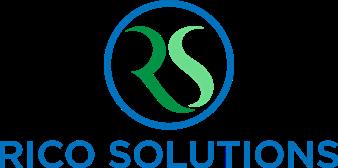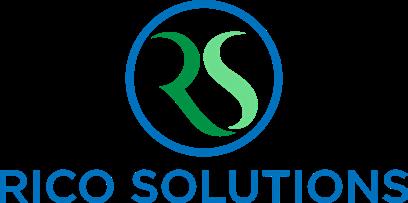Connecting Communities for Sustainable Growth: How Sports Commissions Use Data and Partnerships to Drive Economic and Environmental Resilience












Connecting Communities for Sustainable Growth: How Sports Commissions Use Data and Partnerships to Drive Economic and Environmental Resilience















Sports commissions are uniquely positioned as the central “connector” between local organizations, vendors, and rights holders, making them vital players in the growing sports tourism sector. Their role goes beyond organizing events—they facilitate collaboration, linking key stakeholders to create a unified strategy for success. By fostering partnerships between local governments, businesses, and community groups, sports commissions can help their communities set themselves apart from the competition, making them more attractive to event rights holders and enabling them to win more bids.

By using data from various facilities, vendors, and municipal partners to inform decision-making, sports commissions can optimize their strategies, ensuring that every partnership creates measurable results.
The power of collaboration in event production sustainability cannot be overstated. When local organizations and vendors collaborate with the right stakeholders, they can create a shared vision that benefits the event itself and drives long-term positive impacts for the community. This approach helps attract more visitors, boosts the local economy, supports community development, and promotes environmental sustainability. By working together, communities can deliver exceptional events that align with economic and environmental goals.
However, to make these partnerships work effectively, sports commissions must evaluate data and trends that highlight both the challenges and opportunities in their markets. Data is the tool that enables sports commissions to understand their market’s current sustainability performance, track improvements, and identify areas of growth. By using data from various facilities, vendors, and municipal partners to inform decision-making, sports commissions can optimize their strategies, ensuring that every partnership creates measurable results. These insights help guide choices that reduce environmental footprints, support local businesses, and drive economic growth—ultimately setting the stage for a sustainable future.
This white paper will explore how sports commissions can leverage their role as connectors to build stronger, more effective partnerships that support both local economic growth and environmental resilience. We will also demonstrate how evaluating data and trends can amplify the impact of these partnerships, helping communities win more bids, attract more visitors, and create lasting value for all stakeholders involved.
Sports commissions are uniquely positioned as connectors between local vendors, non-profits, NGOs, and event rights holders. By fostering collaboration among these groups, sports commissions can create a collective impact that benefits both the local community and the environment. Through strategic partnerships, sports commissions can help drive sustainability efforts that leave lasting positive outcomes for the destination and its residents.

One of the first steps in creating sustainable sports events is understanding the sustainability practices already in place within the local vendor community. Sports commissions can engage with local vendors to gain insight into their existing sustainability efforts, such as waste reduction programs, energy-efficient practices, or eco-friendly materials. This understanding helps establish baseline data for what is already being done and where opportunities for improvement or greater collaboration might exist.
Rather than taking on the role of educating vendors, sports commissions can focus on connecting vendors to sustainability-focused initiatives. For example, if a local catering vendor is already reducing waste, the sports commission can link them to an event where sustainable catering practices are a priority. By facilitating these connections, sports commissions create a network of like-minded vendors who can support sustainability efforts throughout the event.
Furthermore, by encouraging the use of local vendors that prioritize sustainability, sports commissions help reduce the carbon footprint associated with transportation and product sourcing, while also boosting the local economy. This approach helps ensure that the economic benefits of the event stay within the community while also contributing to the sustainability of the event.
Sustainability efforts can be greatly enhanced by involving local nonprofits and community organizations in the planning and execution of sports events. By integrating these organizations into sustainability initiatives, sports commissions can help ensure that events provide lasting social and environmental benefits for the community.
Local non-profits and community groups often have a deep understanding of the region’s unique challenges and priorities, and they can help shape event sustainability strategies that are both relevant and impactful. These organizations may already be working on environmental initiatives such as waste management, energy efficiency,
The ultimate goal of sustainability in sports tourism is to leave the community and the environment better off than they were before the event.





or green spaces, and can partner with sports commissions to implement these efforts at events. By collaborating with these organizations, sports commissions can build an event framework that aligns with both sustainability goals and the broader needs of the community. This might include creating volunteer opportunities, running educational programs, or providing resources to help local businesses transition to more sustainable practices. These partnerships also ensure that the community shares in the benefits of the event, not just through economic impact but also through social and environmental gains.

The ultimate goal of sustainability in sports tourism is to leave the community and the environment better off than they were before the event. This requires a concerted effort from all parties involved—sports commissions, local vendors, and community organizations—to ensure that sustainability initiatives create lasting positive impacts.
For instance, waste diversion programs can help ensure that significant amounts of material are recycled or composted, reducing the environmental footprint of events and supporting local recycling or composting facilities, building circularity into the local economy. Sustainable transportation options, such as public transit, physical transit (biking or walking), shuttle services, or carpooling initiatives, can help reduce emissions and improve air quality in the local area.
Beyond environmental benefits, event producers can also create lasting economic and social value. Supporting local businesses by sourcing materials and services locally helps stimulate the economy and creates job opportunities. Additionally, involving community organizations ensures that the benefits of the event reach all residents, whether through educational programs, volunteer opportunities, or increased local investment.
The 2019 U.S. Open Tennis Championship held in New York is a prime example of how a major sports event can embrace sustainability through partnerships and data-driven decision making. The USTA worked closely with local vendors and community organizations to reduce the environmental impact of the event while supporting local economies.
• Local Vendor Collaboration: The USTA focused on working with local vendors to reduce waste, encourage energy-efficient practices, and use sustainable products. For example, many food and beverage vendors used compostable materials, and efforts were made to minimize packaging waste.
• Waste Diversion and Recycling: The event introduced a comprehensive waste diversion program, aiming to divert over 90% of the event’s waste from landfills. This initiative involved local waste management companies and non-profits, helping to create jobs and raise awareness about waste reduction in the local community.
• Data-Driven Strategies: The USTA utilized data from previous years to improve waste management, transportation, and energy use. The organization tracked waste diversion rates, energy usage, and attendee transportation choices, helping them optimize operations for sustainability.
Outcome: The 2019 U.S. Open became one of the most sustainable Grand Slam events, with measurable reductions in waste and energy use. By involving local vendors and community organizations, the event set an example for future sporting events in the U.S. and contributed to long-term sustainability goals for the region. www.usopen.org
Once sports commissions have established strong partnerships with local vendors, non-profits, and community organizations, the critical next step is leveraging data to strengthen and optimize those collaborations. Data plays a pivotal role in driving informed decision-making, monitoring progress, and ensuring that sustainability efforts achieve their desired outcomes. By evaluating trends, measuring success, and identifying areas for improvement, sports commissions can use data to enhance the effectiveness of their partnerships and achieve long-term sustainability goals.
The ability to collect and analyze data is essential for sports commissions to assess the environmental, economic, and social impacts of their market’s sustainability efforts. By tracking key metrics such as waste diversion rates, energy consumption, water usage, and local economic benefits, sports commissions can create a clear picture of how their events are performing and where adjustments may be necessary.
In the context of partnerships, data also enables sports commissions to assess the contributions of each stakeholder. For example, local vendors may track their energy usage or waste output, while community organizations can measure the social impact of their involvement, such as volunteer hours or outreach activities. By aggregating this data, sports commissions can ensure that all partners are meeting their sustainability targets and identify areas where additional support or collaboration is needed.
Transparency and accountability are critical components of any successful partnership. Data helps create an open and honest dialogue between sports commissions and their partners, ensuring that everyone is on the same page regarding goals, progress, and challenges.
For example, by sharing data on waste diversion or carbon emissions, sports commissions can show local vendors how their practices are impacting the environment and encourage further action. This level of transparency helps build trust among partners, as everyone can see the direct impact of their contributions. Additionally, data allows sports commissions to track progress over time, ensuring that sustainability initiatives are continuously improving and delivering real value.
Sports commissions can also use data to report on the success of their sustainability programs, which can be shared with stakeholders, sponsors, and the community. This not only demonstrates accountability but also showcases the market’s commitment to sustainability, enhancing its reputation and attracting future partnerships.

Data-driven decision-making allows sports commissions to optimize their sustainability strategies and ensure they are aligned with the goals of all partners. By using data to identify trends and gaps, sports commissions can make informed decisions that improve both the environmental and economic outcomes of their events.
For example, by analyzing transportation data, sports commissions can identify which routes or modes of transportation are most efficient and environmentally friendly. They can then work with local transportation providers to optimize shuttle services, reduce emissions, and improve the overall attendee experience.
Similarly, data can help sports commissions optimize waste management efforts by identifying areas where waste diversion is not as effective as it could be. By analyzing waste stream data, sports commissions can work with vendors and local organizations to implement more effective recycling or composting programs, ultimately reducing the event’s environmental footprint.
By making data-driven decisions, sports commissions can improve their sustainability programs year after year, ensuring that each event is more efficient, impactful, and aligned with the community’s needs.
Data and partnerships can play a crucial role in improving the Request for Proposal (RFP) process for major events within a sports commission’s market. When sports commissions work closely with local vendors, non-profits, and community organizations to establish sustainability goals, they create a strong foundation for future events. By collecting and analyzing data on past events, sports commissions can refine their sustainability strategies and present a compelling case to event rights holders and stakeholders, demonstrating that the local market is committed to both sustainability and economic growth.
Incorporating sustainability metrics into the RFP process allows sports commissions to showcase the local market’s readiness to host major events in an environmentally responsible manner. This can set the market apart from competitors and attract more events, which bring visitors, revenue, and long-term economic benefits to the region. By presenting data on how previous events have reduced waste, minimized energy consumption, or supported local businesses, sports commissions can demonstrate their commitment to sustainability, which is an increasingly important factor for event organizers, sponsors, and attendees.
Additionally, these data-driven insights can help sports commissions better anticipate the needs of major events, aligning them with the capacity of local vendors and community organizations. For example, knowing that certain vendors are already equipped to provide sustainable solutions allows the sports commission to propose specific service options to event organizers, streamlining the planning process and ensuring that sustainability initiatives are seamlessly integrated.
Ultimately, by leveraging data and fostering strong partnerships, sports commissions can enhance the competitiveness of their market, attract more high-profile events, and contribute to sustainable economic growth and community development.
Ultimately, by leveraging data and fostering strong partnerships, sports commissions can enhance the competitiveness of their market, attract more high-profile events, and contribute to sustainable economic growth and community development.
Super Bowl 50 in San Francisco showcased how a major sporting event could incorporate sustainability practices and create positive impacts on both the community and the environment. The event organizers worked closely with local stakeholders to ensure the game left a positive legacy.
• Community Engagement: The Super Bowl 50 Host Committee partnered with local non-profits to engage communities in sustainability efforts. One of the key initiatives was the Super Bowl 50 Sustainability Fund, which helped support environmental and social projects in the Bay Area, including urban greening, local food systems, and waste reduction programs.
• Sustainable Event Operations: The event itself focused on minimizing its environmental footprint through energy-efficient operations and waste diversion programs. The Levi’s Stadium, the venue for Super Bowl 50, is one of the most sustainable stadiums in the U.S. and was a model for energy-efficient practices.
• Data-Driven Impact: Sustainability metrics, including waste diversion rates, carbon emissions, and energy use, were tracked and reported. These data points allowed the event organizers to make real-time decisions and share transparent results with the community and stakeholders.
Outcome: Super Bowl 50 not only made a significant environmental impact through waste diversion and energy efficiency but also created lasting social value through its community engagement efforts. The event highlighted the potential for major U.S. sporting events to support sustainability goals while driving positive economic outcomes.
www.50fund.org
www.greensportsblog.com
The true value of sustainable sports tourism goes beyond the immediate economic benefits of hosting an event - it’s more than “heads in beds.” It is about creating long-term positive impacts that leave the community and the environment better off than they were before. Through strong partnerships and data-driven strategies, sports commissions have the opportunity to create a lasting legacy that not only enhances the destination’s appeal but also strengthens community resilience and environmental stewardship
Sports and entertainment events often provide a significant short-term economic boost to the host market, but their true potential lies in creating sustained, long-term benefits for the community. By focusing on sustainability, sports commissions can help ensure that the economic impact of an event extends far beyond the event itself.
One of the key ways sports commissions can create long-term economic growth is by supporting local businesses. By prioritizing local vendors and suppliers, sports commissions help circulate event-related spending within the community. This approach not only boosts the local economy but also fosters a sense of pride and ownership within the community, as local businesses are directly involved in the event’s success.
Additionally, sustainable sports events can attract future business opportunities. Many corporations, organizations, and individuals are increasingly looking to align themselves with sustainable initiatives. By positioning their events as sustainability-driven, sports commissions can appeal to these potential partners, creating new revenue streams and fostering long-term economic growth.
Sustainability also supports workforce development. Events that embrace sustainable practices often require a range of green jobs, from waste management and recycling to energy-efficient operations. These positions can provide valuable employment opportunities for the local workforce and contribute to the development of a skilled labor pool. Furthermore, these jobs tend to have longer-term benefits, as the skills gained through working on sustainable events can be applied to other industries within the region.
By focusing on sustainability, sports commissions can help ensure that the economic impact of an event extends far beyond the event itself.

Sustainability is inherently tied to environmental stewardship, and sports commissions can play a key role in ensuring that events reduce their environmental impact. By implementing green initiatives, sports commissions can help protect local ecosystems and resources, leaving a cleaner, healthier environment for future generations.
One of the most significant areas where sports commissions can have an impact is in waste management. By promoting waste diversion practices such as recycling, composting, and reducing single-use plastics, sports commissions can help minimize the environmental footprint of their events. These efforts not only reduce the amount of waste sent to landfills but also create a culture of sustainability within the local community.
Another important area is energy conservation. Sports events often require significant energy resources, but by focusing on energy-efficient solutions—such as LED lighting, renewable energy sources, and energy-saving equipment—sports commissions can significantly reduce the carbon footprint of their events. Moreover, energyefficient practices often lead to cost savings, which can be reinvested into other sustainability initiatives.
Water conservation is another key consideration for sports events, particularly in regions facing water scarcity. By partnering with facilities and service providers that implement water-saving technologies, such as low-flow fixtures, water recycling systems, and efficient irrigation practices, sports commissions can help reduce the strain on local water resources. These efforts not only benefit the environment but also set a positive example for the community and other industries to follow.
The success of a sustainable event is not just about its immediate outcomes—it is also about the legacy it leaves behind. Sports commissions have the opportunity to build a lasting connection with the community by actively engaging local residents in the event’s sustainability efforts.
Community engagement can take many forms, from involving local schools and youth organizations in sustainability initiatives to offering volunteer opportunities for residents to participate in event planning and execution. By creating
pathways for community members to get involved, sports commissions can foster a sense of ownership and pride in the event, leading to stronger long-term support.
Engaging the community can also raise awareness about sustainability and inspire individuals to adopt more sustainable practices in their daily lives. Whether through educational programs, workshops, or local outreach campaigns, sports commissions can use their events as a platform to promote environmental and social responsibility.
This sense of community involvement also extends to the event’s social impact. By supporting initiatives such as access to sports for underserved populations or encouraging local cultural celebrations, sports commissions can ensure that their events contribute to social cohesion and inclusivity, leaving a positive social legacy for the community.
To ensure that the positive impacts of sustainable sports events last, sports commissions must focus on sustainability beyond the event’s conclusion. This means setting clear, long-term sustainability goals that extend into future events and beyond.
For example, sports commissions can establish sustainability initiatives that continue after the event, such as supporting local environmental projects, offering scholarships for green industry training, or maintaining community partnerships that focus on long-term environmental and economic resilience. By embedding sustainability into their core operations and event planning processes, sports commissions can create a self-sustaining model that continually improves, attracts new opportunities, and benefits both the community and the environment for years to come.
The 2020 NBA All-Star Game in Chicago was another example of how a large sports event can partner with local organizations and use data to ensure sustainability while benefiting the local economy.
• Vendor Collaboration: Local food vendors and suppliers were encouraged to adopt sustainable practices, such as sourcing ingredients locally and minimizing single-use plastics. The event worked with local vendors to reduce waste and create a more sustainable food and beverage service.
• Waste Management and Transportation: The event promoted public transportation options, including the use of public buses and trains to minimize emissions from attendee travel. A large-scale waste diversion program was also put in place to ensure that as much waste as possible was diverted from landfills.
• Community Partnerships: The Chicago Sports Commission worked with local schools and community groups to promote sustainability efforts, including organizing volunteer programs and encouraging sustainable practices among attendees. The event also raised awareness about environmental issues through educational outreach.
Outcome: The 2020 NBA All-Star Game demonstrated the power of local partnerships and data-driven sustainability initiatives. The event not only left a positive environmental footprint but also contributed to the local economy by supporting local businesses and creating community engagement opportunities.
www.nrdc.org
As we’ve explored throughout this white paper, sports commissions have a critical role to play in fostering sustainability within sports tourism. By acting as connectors between local vendors, non-profits, community organizations, and event rights holders, sports commissions can create partnerships that drive both short-term and longterm benefits for the local economy and environment.
Sustainability in sports tourism is not just an ethical choice—it’s a strategic one.
Sustainability in sports tourism is not just an ethical choice—it’s a strategic one. Communities that embrace sustainability are better positioned to attract major events, bring in more visitors, and generate lasting economic impact. By collaborating with local vendors and community organizations, sports commissions can not only reduce the environmental footprint of their events but also create a more vibrant, resilient community.

Data plays a pivotal role in this process, providing insights that inform decisions, ensure transparency, and enhance partnerships. By collecting and analyzing sustainability metrics, sports commissions can track their progress, make data-driven decisions, and optimize strategies that deliver both environmental and economic benefits. Furthermore, good data strengthens the Request for Proposal (RFP) process, showcasing the local market’s commitment to sustainability and setting it apart from competitors.
The ultimate goal of these efforts is to leave the community and environment better off than before. Whether through waste diversion programs, energy conservation, or community engagement initiatives, sports commissions can build a lasting legacy of positive change. By aligning sustainability with their core event-planning strategies, sports commissions help create a future where sustainability is not just a buzzword, but a driving force for growth and resilience.
As the sports tourism industry continues to evolve, those communities that embrace collaboration, leverage data, and prioritize sustainability will be the ones to stand out. Sports commissions, as the key connectors of local stakeholders, are uniquely positioned to lead the way in this transformation, ensuring that sustainability becomes a hallmark of success in sports tourism for years to come.
As the sports tourism industry continues to evolve, those communities that embrace collaboration, leverage data, and prioritize sustainability will be the ones to stand out.
The 2018 College Football Playoff National Championship held in Atlanta is a good example of how sports commissions can drive sustainability through collaboration with local vendors and community organizations.
• Local Vendor Engagement: Local vendors were engaged to reduce their environmental impact by using sustainable serviceware, minimizing food waste, and sourcing ingredients locally. This effort helped reduce the carbon footprint associated with food and beverage services at the event.
• Energy Efficiency and Waste Diversion: The event used energy-efficient lighting and appliances, and a comprehensive waste diversion program was implemented to reduce waste sent to landfills. Atlanta’s Georgia Dome worked closely with local recycling and composting facilities to ensure that all waste was properly diverted.
• Long-Term Community Benefits: The event also made a lasting impact by funding local environmental initiatives and programs aimed at improving community sustainability. Partnerships with local schools and youth groups helped raise awareness of sustainability in the sports tourism industry.
Outcome: The 2018 College Football Playoff National Championship not only reduced its environmental footprint through sustainable practices but also had a lasting impact on local youth, businesses, and the environment. It set the stage for future sports events in Atlanta to focus more heavily on sustainability. www.news.gsu.edu
More in 2024! www.collegefootballplayoff.com

As leaders in the sports tourism sector, sports commissions have the power to shape the future of events in their regions. By prioritizing sustainability and building strong partnerships with local vendors and community organizations, sports commissions can create lasting economic and environmental impacts. We encourage sports commissions to:
Together, sports commissions can lead the charge toward a more sustainable future for sports tourism.
• Continue fostering partnerships that bring together local vendors, non-profits, and community organizations to drive sustainability initiatives.
• Leverage data to optimize sustainability strategies and track progress.
• Use sustainability as a key selling point in the RFP process to attract more major events to their market.
• Leave a positive legacy by ensuring that events contribute to both the economic and environmental well-being of the community.
The 2019 NCAA Men’s Final Four in Minneapolis is another strong example of a major event leveraging partnerships to achieve sustainability goals while benefiting the local community. (Certified Silver by the Council for Responsible Sport)
• Collaboration with Local Vendors: The event organizers partnered with local businesses to reduce waste, use sustainable materials, and improve energy efficiency. Sustainable catering practices were introduced, and local vendors were encouraged to reduce food packaging waste.
• Waste Diversion Programs: A comprehensive waste diversion program was implemented, helping to divert over 70% of event waste from landfills. The event worked with local recycling facilities to ensure that recyclable materials were properly processed.
• Economic Impact for the Local Community: The event drove significant economic impact by supporting local vendors and businesses while creating volunteer opportunities for community members. Local non-profits were also involved in event logistics and sustainability efforts.
Outcome: The 2019 NCAA Men’s Final Four successfully demonstrated how sustainability initiatives can create value for both the environment and the local community. By fostering partnerships with local vendors and organizations, the event achieved significant waste diversion and supported Minneapolis’ broader sustainability goals. www.minneapolis.org



With over 25 years in event production, Jen Marhenke brings extensive practical knowledge and hands-on experience to this course. Over the past decade, she has made sustainability a primary focus, leading teams to integrate sustainable practices into event operations. Through roles in event operations and as an Event Verifier for the Council for Responsible Sport, Jen has successfully led teams in reducing waste, conserving energy, and minimizing environmental impact, supporting events in achieving their sustainability goals. Now a Sustainability Program Manager for Rico Solutions, a consulting firm specializing in sports and event sustainability, Jen continues to drive environmental initiatives forward. Passionate about creating lasting change, Jen’s approach to sustainability is grounded in real-world experience. Committed to continuous learning, she actively engages with the sustainability community through memberships and ongoing education, valuing the insights and collaboration that come from working with peers. This dedication to learning and sharing knowledge drives Jen to advance sustainability collaboratively, ensuring that environmental responsibility is not just a goal but a reality in the sports and events industries.
As the only non-profit 501(c)3 trade association for the sports events and tourism industry in the United States, Sports ETA is the most essential resource for sports commissions, sports destinations, sports event owners, and industry partners. We believe sports tourism and the events that our members own and host have the power to transform society for the better. Our passion is to help sports events and tourism professionals achieve previously unimaginable levels of performance. We do this by nurturing a community of smart, creative, and interesting people: our members.
Visit sportseta.org.
Trusted Sports Sustainability Expertise

At Rico Solutions, we specialize in unlocking your organization’s full sustainability potential through innovative and tailored strategies designed to drive success. Our team of experts combines deep industry knowledge with technical skills to deliver impactful, actionable solutions that align with your unique needs and goals. From conducting thorough assessments and pinpointing areas for improvement to developing targeted solutions and connecting you with the right resources, we are dedicated to helping you achieve measurable progress in sustainability.